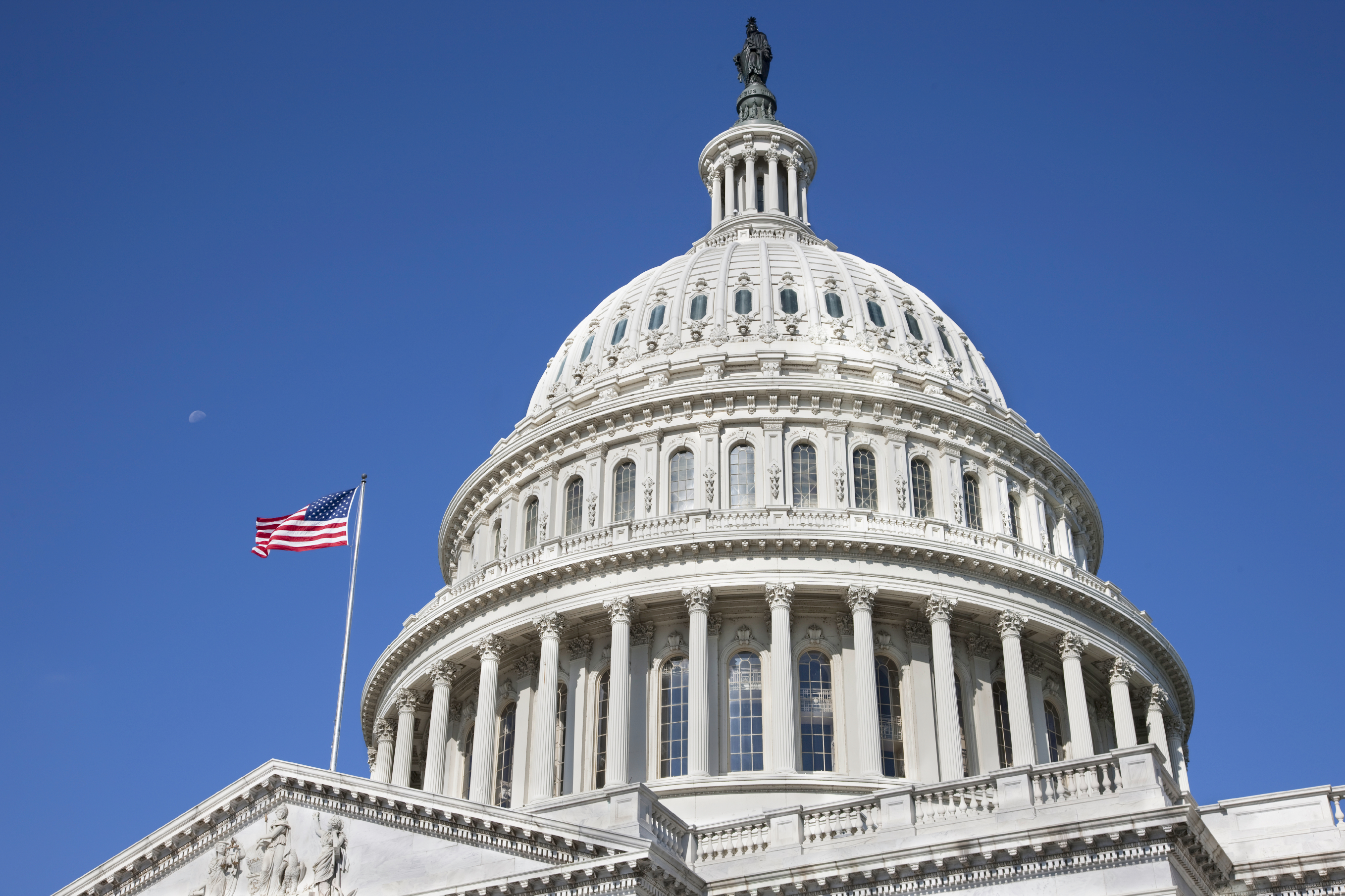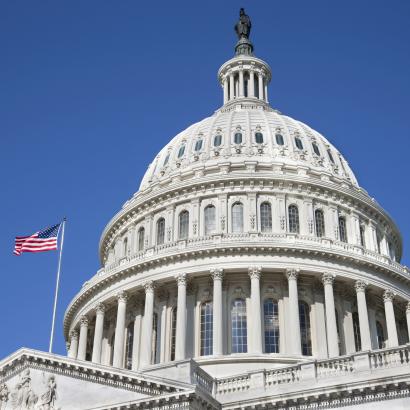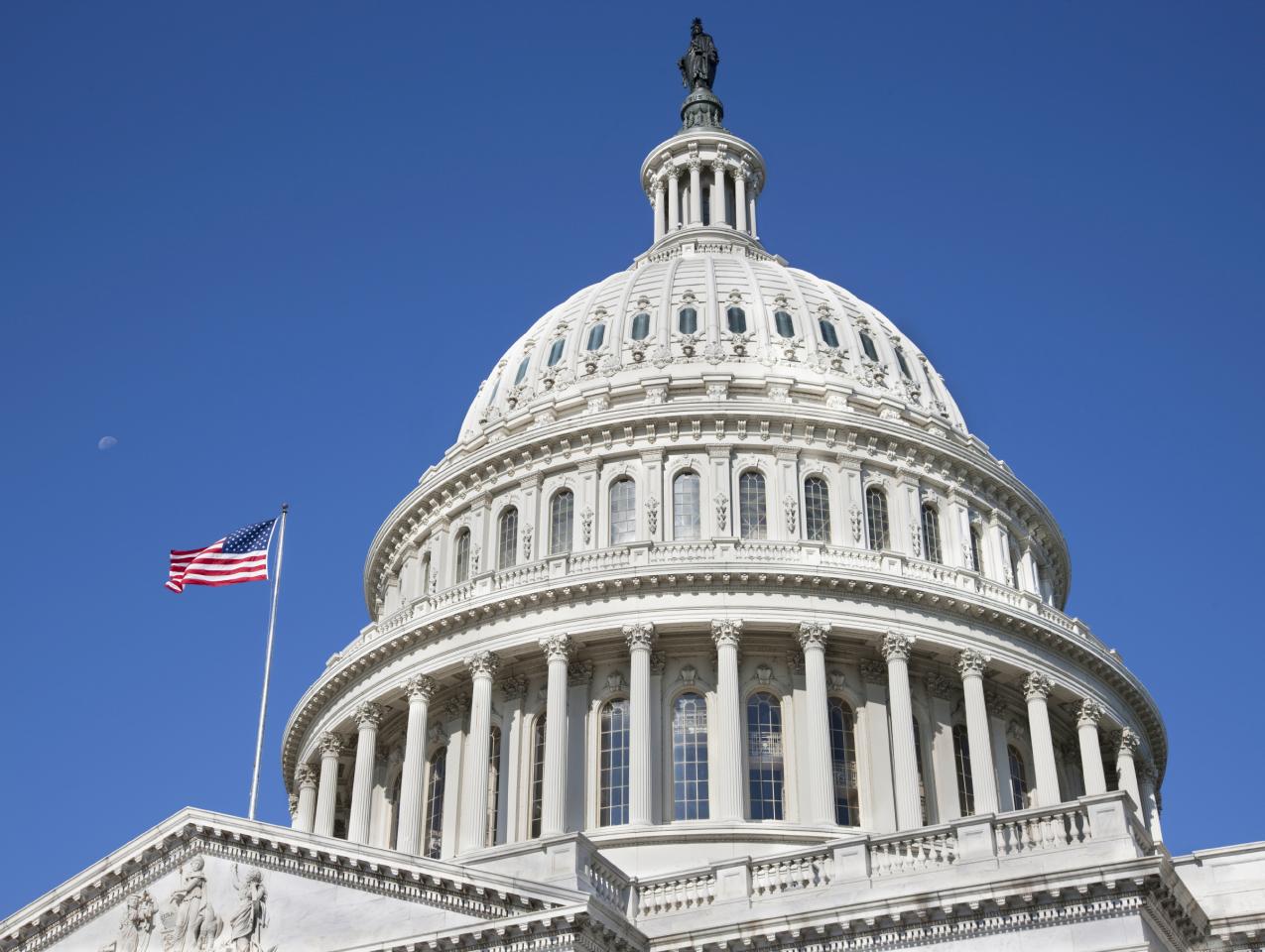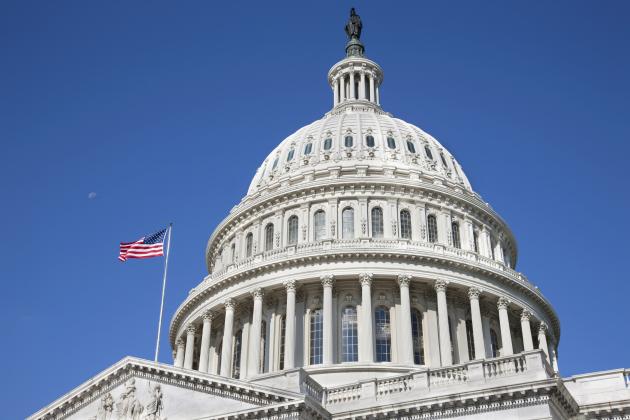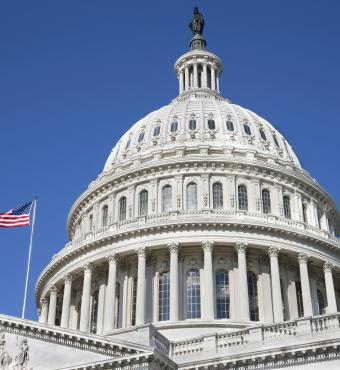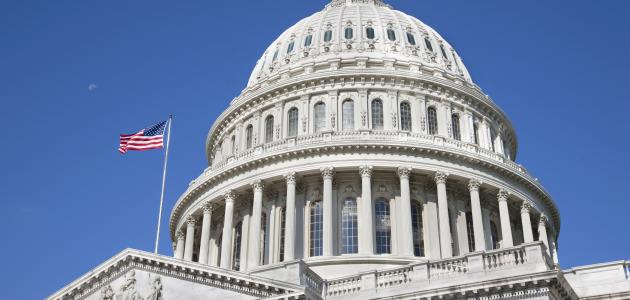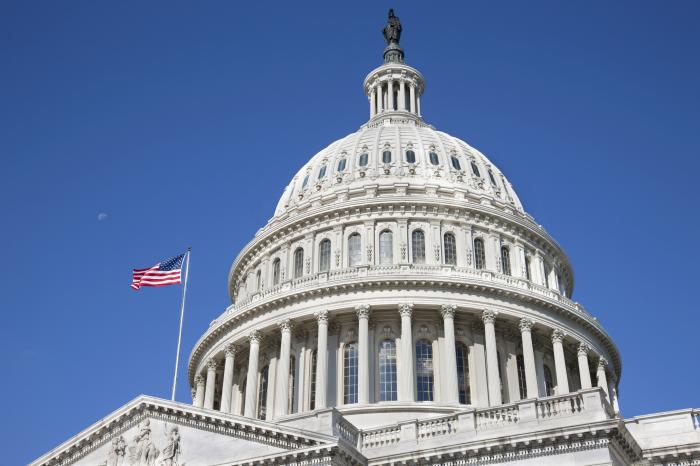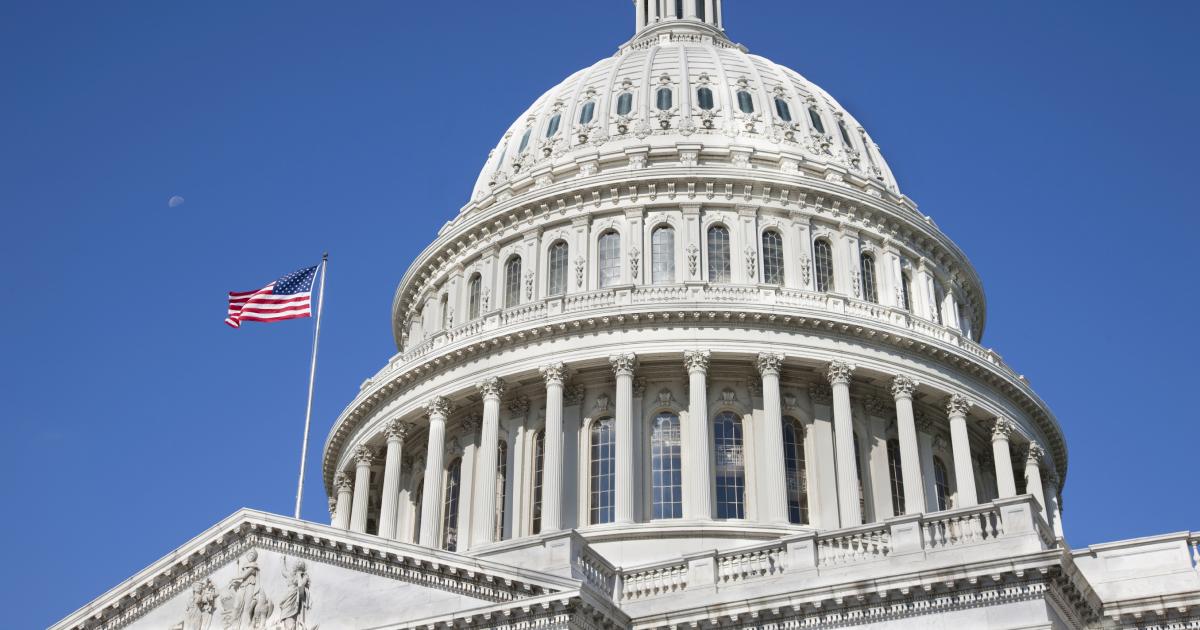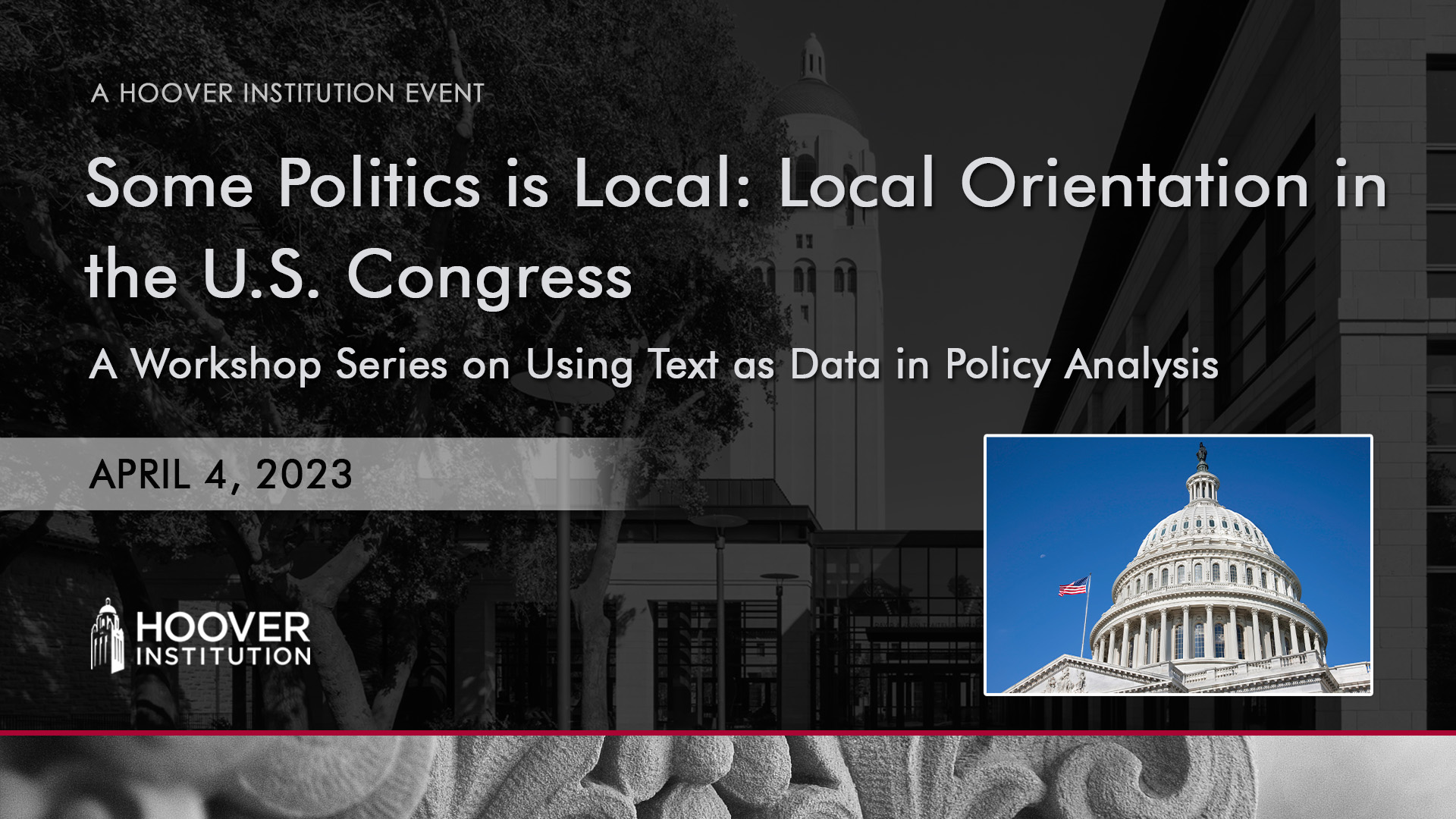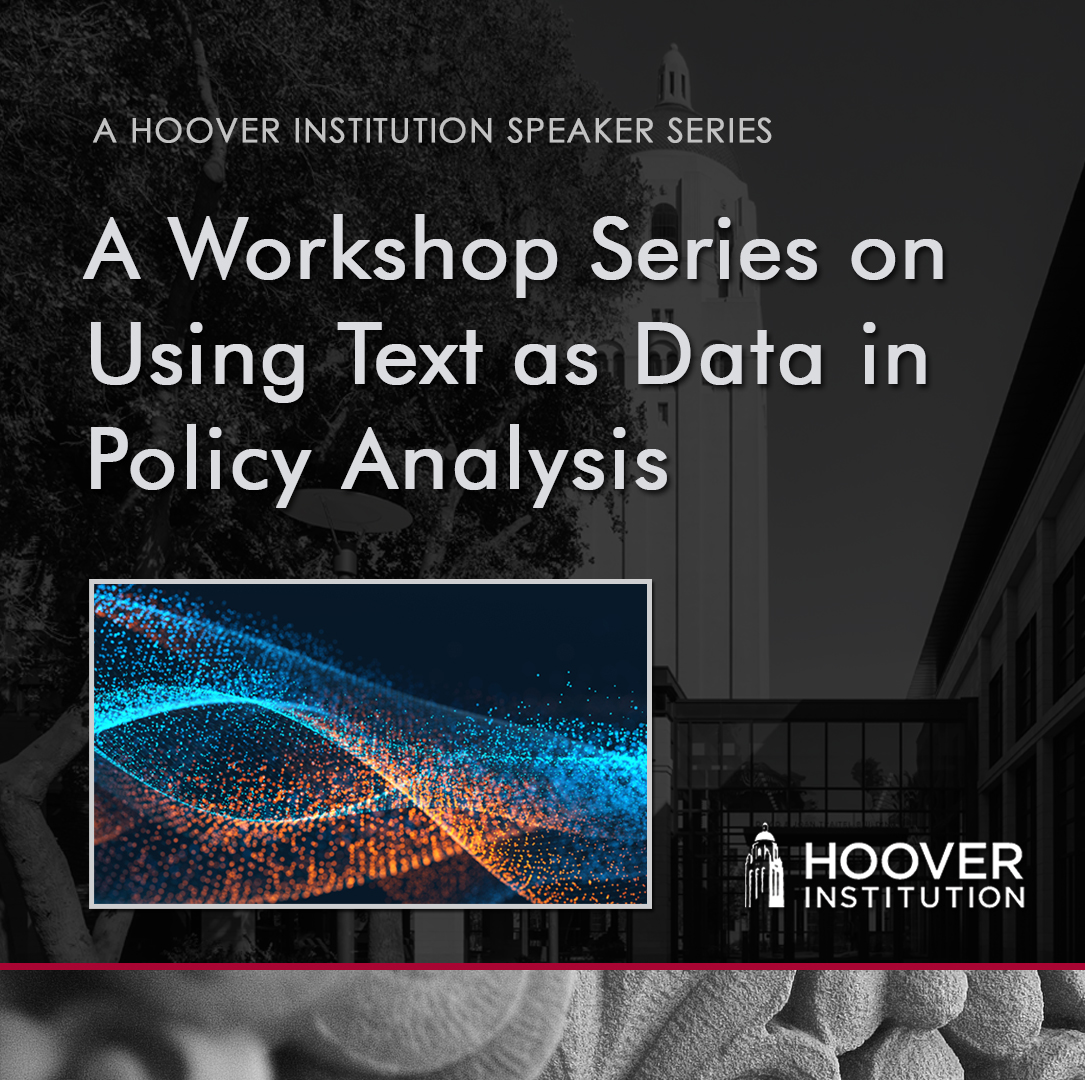Pamela Ban and Jaclyn Kaslovsky speaking on Some Politics is Local: Local Orientation in the U.S. Congress.
The Hoover Institution hosts a seminar series on Using Text as Data in Policy Analysis, co-organized by Steven J. Davis and Justin Grimmer. These seminars will feature applications of natural language processing, structured human readings, and machine learning methods to text as data to examine policy issues in economics, history, national security, political science, and other fields.
Our 18th meeting features a conversation with Pamela Ban and Jaclyn Kaslovsky on Some Politics is Local: Local Orientation in the U.S. Congress on Tuesday, April 4, 2023 from 9:00AM – 10:30AM PT.
>> Justin Grimmer: All right, everyone, welcome to the Hoover Institution workshop on using text as data in policy analysis. At this workshop, we feature applications of natural language processing, structured human readings, and machine learning methods to text as data to examine policy issues and economics, history, national security, political science, and really social science broadly defined.
I'm Justin Grimmer, I co-organize the workshop with Steve Davis. Today we are thrilled to have Pamela Ban, who is an assistant professor of political science at UCSD, and Jaclyn Kaslovsky, an assistant professor of political science at Rice University. And they'll be presenting their paper, Some Politics is Local, Local Orientation in the US Congress.
So just very quickly, some ground rules. Jaclyn's gonna speak for about 30 or 40 minutes. If you have questions, please place them in the Q&A feature. Steve and I might interject if we have pressing questions, and Pamela and Jaclyn might respond to your clarifying questions in the Q&A.
After the presentation is over, Steve or I might recognize you and you might get the opportunity to ask your question live. Or we could paraphrase your question for you, just depending on how it's going. After about an hour, we're gonna turn the recording off and we can get into more nuts and bolts questions about what was done and how it was done.
And so with that, take it away Jaclyn.
>> Jaclyn Kaslovsky: Great, thank you so much for having me here. Let me share my screen. So, yes, I'm Jaclyn Kaslovsky, and I'm here to be presenting some co-authored work with Pamela Ban. And we're gonna be talking about what leads members to be Locally Oriented in Congress or essentially what leads members to actually emphasize their constituents in the middle of the policy making process.
And I wanted to begin by motivating this presentation with some recent news headlines. So these headlines all make pretty strong claims, such as America has local political institutions, but nationalized politics, this is a problem. And as you can see, these headlines all denounced or note the recent rise of nationalized politics in us elections, arguing that local politics has decreased in relative importance over time.
And it's really not just journalists that are making these claims. Recent work in political science substantiates a lot of these concerns, arguing that American politics now centers around the national party brands as opposed to these local issues. So, for example, Dan Hopkins has a book on this called the Increasingly United States.
Consequently, the majority of this work really focuses on state and local elections. But there is some evidence, such as Francis Lee's work, that increased partisan competition in the US Congress has really led members to coalesce around these national issues. And that it is impacting how members are behaving inside of Congress.
And specifically, it said that legislators have changed how they communicate in all different forms, floor speeches, tweets, press releases, and they're now using these communications to communicate the party brand to a national audience. What this suggests is that legislators have to allocate more time, effort and resources to party topics and less time to things uniquely related to their own individual districts.
But we also know that this kind of representational style won't work just as well in every district, and that legislators still need and probably want to speak directly to their own unique constituents. And further, to our knowledge at least, scholars have yet to investigate how these communication patterns have changed outside of very specific contexts, mainly in these constituent facing forms of communication.
So no one has looked, for example, at who discusses their constituents inside congressional committee hearings, where the majority of policymaking actually gets done. So, as a result, in this paper, we ask what drives legislators to emphasize local issues in a nationalized setting? And more specifically, we wanna know how do electoral competitiveness, district demographics and legislative characteristics influence a member's local orientation.
Or how much they're focusing on their individual district circumstances during the committee stage? Which is a really formative step in the policy making process, where members are actually discussing and writing the legislation, and where we think actually constituent and local interests might be particularly salient for member behavior.
So here we have a roadmap of where you can expect the rest of this presentation to go. So I'm gonna begin by discussing some of the existing work that I referenced earlier and our theoretical expectations. I'll then introduce the data that we're going to be using to actually examine these theories, present some new evidence demonstrating how these factors influence local orientation inside of Congress.
We're then gonna spend some time investigating potential heterogeneity, so things like party and the type of hearing, and then finally we'll examine a contrasting institutional setting. Okay, so now onto the existing work. As I mentioned, there's a lot of really great work on this actually, but they tend to look at when legislators will emphasize local concerns over national ones in other contexts.
So specifically, existing work largely focuses on constituent facing communications like press releases, responses to constituent emails. And even things like when legislators will allocate resources towards the district versus towards Congress. And one notable exception to this is Bernhard and Sulkin, who classify members using a bunch of different measures of member activity into five different types, and one of which is the district advocate.
But even their measure of district advocacy only actually focuses on how legislators are allocating their staff. And while district facing activity and communications are really informative and important to look at. Legislators might actually behave differently during actual policymaking, when they're less able to credit claim for what they say and statements can't be as easily turned into digestible sound bites.
And to our knowledge, no one has tackled this yet. So what we're gonna do is take a two pronged approach, that tries to capture local orientation during legislative speech in the committee stage. And we're here because we're using a text as data approach in which we're using committee hearing transcripts to actually do that.
And we really like this source of data because again, these are communications that are not geared towards constituents. Committee hearings involve legislators talking to their fellow legislators about the policy. Maybe interest groups are paying close attention, certain actors that are really involved, but they're not easily as explained to constituents when there's this complicated back and forth about policy.
And what we're gonna do is use that data to track how representative orientation has first evolved over time. And then also actually try and provide some empirical evidence for what leaves a legislator to exhibit a local orientation. Okay, so with that being said, under what theoretical conditions do we actually expect this to happen?
The first group of variables that we're gonna look at focus on electoral competitiveness. There's a lot of work demonstrating that legislators work really hard to try and build trust with their constituents by portraying this image of being one of them, right. I am one of you and fostering this image of mutual understanding.
And one way to do that might be. To try and talk about constituent needs a lot during policymaking. We think that safe legislators might not feel the kind of pressure to do this as much, since they have that electoral cushion. Whereas vulnerable legislators might feel a lot more pressure to actually work harder on behalf of their constituents.
But alternatively, vulnerable legislators may actually feel the need to demonstrate the stronger commitment to the national party brand that I referenced earlier. The next group of variables is district demographics. So, we know from some recent work that legislators are actually pretty largely responsive to district preferences and roll call voting.
And we might think of a preference for a local versus a national orientation as a kind of preference. There is some survey research on this, and it finds that these kinds of preferences tend to be correlated with district education levels, income, and the racial makeup of the district.
And finally, we might think that legislator characteristics matter. So things that are actually specific to the individual, one thing has to do with gender. So there's a lot of work showing that women in Congress report feeling a higher need and actually do perform higher levels of district focused activities, right?
So higher levels of constituency service, allocating more staff to the district, procuring higher levels of federal grants. And we also know that constituents tend to actually reward them for performing this kind of community oriented behavior. So because of that, we might actually also expect them to be more district oriented in other ways, like their speech.
And finally, we might think that race matters. Work in descriptive representation shows that non white legislators report feeling a heightened need to represent and explain constituents interests to their fellow legislators. And that this has also been shown to affect similar in the way that gender does, performing a higher amount of district oriented activities.
And we also know that black legislators actually tend to participate at higher levels than white legislators in committee hearings. So with that being said, how can we actually test this? We need the data in the committee hearings, and to craft our measure of local focus, we use all available congressional committee hearing transcripts from 1999 to 2018.
And this data was all downloaded from the government publishing office and is great for our purposes because it contains what each member has said during committee hearings, including all statements, questions and answers. Here you have an example of what these hearings look like, so this is a PDF of the text.
This is a hearing from the Committee on Education and labor in the 117th Congress, in which they're talking about the cost of higher education. And then we can zoom into these hearings and see what the members are saying. So at the top you have Chairman Scott, which is Bobby Scott of Virginia and is easily identifiable as such, followed in speaking by Ms Davis, who is Susan A Davis of California.
So we can easily match what the person like who is saying what. And our goal is to use this data to capture two types of local orientation that we think of as theoretically important. The first is geographic focus, which encapsulates mentions of cities, towns, counties in the district, so when they're actually referring to the local places where their constituents live.
And the second is direct constituent emphasis, which are just like clearer statements, like constituent my district, my community, etc. So, to capture this geographic element, we create a dictionary, including the names of all counties and sub-county geographic units in an individual member's district. So this is member specific and this data comes from the Missouri Census Data Center.
However, that list isn't perfectly clean off of the bat. There's some things that we wanna take out of there to address false positives. So the first is words that or place names that coincide with common words, there's actually like a town called agency. And if a member says agency in a community here in context, they're probably not talking about the place, right?
They're probably talking about the bureaucratic agency. We then remove the top 100 last names in the US, the top 101st names, and all country names, cuz again, we think those are probably gonna flag false positives. And what this gives us is a unique part of the dictionary for each member's district.
And here, you have an example of these words for New Jersey's 7th district in the 112th Congress. So this is where I'm from originally and you can see my hometown of Belle Mead is included there at the top. And these are the places that we would pull out for that member.
And next, we include words that we think are important, right? So when Pam and I were thinking about, what does constituent emphasis mean? We think about words like constituent and district. But that's just Pam and my beliefs, right? That's gonna be biased and we can't think of every possible term that could possibly indicate local orientation on our own.
So what we did is run a topic model for discovery in which we pre process the text in all of the standard ways. And then run a very large topic model on the statements grouped by presidential terms in order to help get an idea of other words that we might have missed.
So we identify the locally oriented topics and use the top words in that topic to help us in our dictionary. And each phrase is used in a regular expression so that we can actually capture any tense version of the phrase. So we're not missing important things because of things like punctuation or spaces.
And here's what that part of the dictionary looks like, this part is the same for all members. And note that some of them have asterisks. And what those asterisks indicate is that we used the two word phrase instead of the singular word, again in order to avoid false positives.
So originally we had just state in our dictionary, and we realized we were picking up a lot of State Department. And so that's not what we wanna do. And so we try to limit it down to phrases that we think actually capture what we're interested in. And taken together, this combination yields a member-specific dictionary, local place names in the members district, as I showed you earlier, plus these main phrases that everyone has.
And of course, as Justin has famously written on, right, validation is extremely important whenever you're working with text. And so we're currently in the process of having a series of research assistants, like code the statements as they think, as being locally oriented or not, and comparing that to our dictionary.
And we're definitely happy to talk more about validation in the Q&A if you're interested. So what that dictionary actually gives us is statement like these. This is an example of what we would consider geographic focus, and it comes from the 111th Congress, from Jean Schmidt, who was talking about job growth.
And they say, Sir, you keep saying multiple strategies. I just wanna go back to my farmers and say, hey, guys, in West Union, here is what we are going to do for you. Because they are practical, like me. They want answers, they don't want we're going to build something.
They wanna know what you are going to build. Our dictionary would flag that geographic mention of West Union. This is an example of what we think of, of constituent emphasis. This comes from Bob Etheridge in an agricultural committee hearing, saying, I hear every day from constituents, as I'm sure every other member on this panel does, who are struggling to make ends meet while gas prices and diesel fuel prices are skyrocketing.
This Sunday at my church, one of my constituents told me he is going out of business because he can't continue at the current rate to drive his truck and put fuel in, it is taking half of it. So here our dictionary is flagging the mention of constituents and this is exactly the kind of statement we want to capture, right?
It's a statement in which a legislator is explaining the circumstances in their individual district and using their discussions with constituents, their opinions, to try and explain or persuade to the other legislators in the committee what their policy position is. And with this data in hand, we can create our outcome variable, which is the average total mentions in a hearing.
So that's the average number of times a member uses a word from our dictionary in a given committee's hearings, in a given Congress. And this graph shows the average of that variable over time, starting from 1999 through 2018. And as you can see, it has slightly decreased from a high of about six mentions per hearing in 2001 to about three mentions in our most recent congress.
And this graph shows the average of this variable by committee across all of the congresses. And you can note that it's logged here because of the skew nature of the distribution. So I think that this graph actually provides some pretty good face validity right off the bat of our measure.
If you look at the committee with the highest amount of mentions, it's appropriations. And appropriations provides members with a lot of opportunities to talk about individual districts and communities because they have to explain why a project should go there. On the other end of the spectrum, you have foreign affairs and armed services, which, again, makes sense if you think about their topics, right?
They're talking about things of national and global importance that might make it a little more difficult to bring up their individual constituents. So, now we can look at which members are using this kind of language the most. And this graph displays the spread of average mentions in a hearing by member across all of their committees in a given congress, and labels the member with the highest value at the top there.
And their party determines what color they are, so a few patterns immediately stick out. The first is that most of these are Republicans, and the second is that only one is a woman with Rosa Delauro from Connecticut in the 115th Congress. And while this is really useful descriptive information, the data presented so far doesn't account for factors like geographic location, the policy jurisdiction of the committees, or time, right?
So all of these factors can contribute to how much local level attention a legislator exhibits during the committee phase. And we wanna account for those in our analysis. Okay, so we're gonna now move into actually presenting our evidence about the relationship between these factors and local orientation inside Congress.
And here's our model. We're gonna use the variable I was just describing, the log to average total mentions in a hearing plus 1, as the dependent variable. And the independent variables are based off of all of the hypotheses I was just explaining. So we have a group of variables based off of electoral safety, like a legislator's previous general election vote share.
The difference in the same party vote share in the previous presidential election, and the legislator's own vote share. So that's trying to capture if there's ticket splitting, district demographics like median household income, education, race, percent veteran and percent 65 and up, and also legislator characteristics. So indicators for Democrat woman in a village center is black, Latinx, or Asian.
Importantly, we also include district committee and Congress fixed effects. So, as I just showed you, different committees have different opportunities to discuss these topics. So we're holding time invariant factors specific to individual districts and committees constant. I also wanna note that we include controls for chairmanship, majority party status, ideological extremism of member, as well as the member's total logged average speaking instances in the committee.
And all standard errors are gonna be clustered on the district. So now I'm gonna show you that preferred specification in the third column. As you can see, that includes all of the fixed effects. But I'm also gonna present some results that are just district fixed effects as well as just district and committee.
And then I'll walk you through each group of our variables. Here are those results and we're gonna start by talking about the electoral competitiveness variables. So first, none of these are statistically significant at conventional levels. Among our demographic variables, only percent white actually reaches statistical significance, although the effect size is substantively quite small.
So a 1% increase in percent white alone in the district is associated with about a 0.6% increase in average mentions in a hearing. And finally, while our indicator for legislator is black, Latinx or Asian does not reach conventional levels of significance, the coefficient on legislator is woman does.
It's large, positive, and significant at the 95% level. And what this indicates is that women are significantly more likely than comparable men legislators to demonstrate a local focus in committee hearings. And in terms of effect sizes, moving from being represented by a man to being represented by a woman, is associated with about a 10.4% increase in average mentions in a hearing.
So what do we take away from this? We do not find any evidence that electoral vulnerability is associated with an increased local focus, while there is some weak evidence that the racial demographic makeup of a district is. And finally, we do find evidence that gender impacts local focus.
And this finding is really in line with the existing work that I mentioned earlier in the presentation that largely focuses on constituency service and grants. Here we're providing evidence of another new way that women seem to be more district focused in Congress than men. But now we can see if there's any potential heterogeneity in these results.
And in particular, I think a natural question that arises from this is what about differences by party? So to investigate this question, we're gonna subset bipartisanship and rerun the exact same model as before. The independent variables are shown on the x axis, and the coefficient estimates are all on the y axis.
You'll see vertical lines representing the 90 and 95% confidence intervals. And the horizontal dashed line represents the null hypothesis of no effect. And I should also note that all non binary variables here are going to be standardized for ease of comparison. And here's what that looks like, so Democrats are in blue and Republicans in red.
And interestingly, the gendered effect persists across both Republicans and Democrats. The effect of percent white appears to be concentrated among Democrats, and now percent veteran also stands out as negative and significant among Republicans. And what that indicates is that as the percent of veterans in a Republican's district increases, they're less likely to demonstrate a local focus in Congress.
And we think it's unique and interesting that this gendered effect remains across both parties, although there do appear to be some differences based off of the demographic variables. And in the paper, we also explore heterogeneity by the type of hearing. So House Committee hearings can be categorized into three different general types.
There's legislative oversight and investigative, and the salience of constituency interest might vary by the type of hearing that they're in. So legislative hearings might just give more opportunities to talk about things of relevance to constituents, as opposed to investigative or oversight hearings that are focused on things like the bureaucracy.
To investigate this possibility, we follow McGrath 2013, who creates a dictionary. And after following that dictionary, about 72% of hearings in our data are labeled as legislative and 32% are labeled as oversight or investigative. And the effect of gender persists across both types of hearings for Republicans, but appear to be concentrated in legislative hearings for Democrats.
And that effect on percent white alone for Democrats is actually concentrated in legislative hearings. And what we think this points to is how the audience or the intent of a hearing can influence the opportunities for a website or to be locally focused. Particularly in regards to oversight and investigative hearings that are often focused on examining agencies.
And those kinds of hearings just might be more removed from direct constituent related matters. And finally, we're gonna move into examining a contrasting institutional setting. So far, I've shown you results that are from legislative behavior, specifically in committee hearings, which again, we think are a really critical part of policymaking and are not a direct constituent facing activity.
Which for us so far is a positive, that's why we picked this area. But as Richard Hall's work demonstrate, members participate in so many ways in Congress, especially when it comes to their speech. And what this leads us to ask is, do members exhibit different levels of local orientation depending on the institutional setting inside of Congress, especially when maybe there's a different audience associated with that setting?
And to answer this question, we're gonna re-examine our same hypotheses, but in the context of the House floor. And there are some pretty important differences between the floor and the committee stage. So first of all, the floor is a much more final step in the policymaking process, in which a lot of time these speeches are coming right before a vote is about to happen.
And also, the floor is just much more covered by the media and is way more easily accessible to constituents. So here you have an example from Rep Tom Malinowski, again, of New Jersey 7th Congressional district, his floor speech being covered on C-SPAN. But members themselves often quote their floor speeches, send them to newspapers, put them in press releases.
So they're just much more easily accessible to constituents than committee hearings are, which are, again, are oftentimes discussing the more nitty-gritty of a specific bill. And to do that, we're gonna use the congressional record data from Gentzkow, Shapiro, and Taddy, which covers floor speeches from 1995 to 2016.
And importantly, speaking instances on the floor are full speeches, whereas before, we were looking at members, individual statements in committee hearings. Another importance is that, the parties have much more control over who gets to speak and how many times on the floor versus in committee hearings where there's many more rules about equality.
So what we're gonna do is include a count of the total speaking instances that a member had for a given Congress to try and control for this element of party influence. But other than that, we're rerunning the same model as before. And here are results, I'm gonna point you to two specific aspects of this model.
The first is that now the coefficient on percent with a bachelor's degree sticks out as positive and significant. The constituents with a bachelor's degree in a district is positively associated with local emphasis of the floor. And again, I'm gonna point you to this coefficient on legislator as a woman, which is actually now no longer statistically significant.
So what do we take away from this? First, there do appear to be differences between these two analyses. While women appear to behave differently than men when it comes to locally oriented speech and committee hearings, this difference does not show up in this less insulated area of the floor.
And also, there are these demographic differences where percent white no longer stands out, but percent with a Bachelor's Degree does, with an effect size of about 2.4% increase in local mentions on the House floor. To wrap all of this up, we think that we make four main contributions.
The first is that we're providing a new and systematic measure of local orientation in Congress that can be used to answer a lot of really interesting questions. So, for example, maybe scholars want to look at how this kind of speech is associated with descriptive representation. Or maybe, do members who are born in their districts use more of this kind of local, community-oriented speech?
And using this measure, we find that legislators local focus has decreased over time, supporting those existing narratives that I spoke about at the beginning of the presentation about this change in communication towards broader, more nationalized issues. We also demonstrate the powerful influence of women in Congress. So our results today bolster this existing work, showing that women politicians seem to hold themselves to maybe different standards of accountability in office.
And what do we mean by that? We mean that it seems like women seem to hew more closely to constituent opinion than comparable men legislators, at least in the committee hearing setting. And these results further indicate that constituency representation may continue to evolve along with the number of women legislators.
So as the number of women in Congress continues to increase, so might constituency influence in policy making. But we also find that when we shift to another institutional setting within Congress, so still within the chamber. These patterns we observed in the committee stage are more absent, which provides new evidence that the link between gender and policy seems to prove especially important in settings when constituents are actually less likely to be aware of its occurrence.
And one thing I wanted to touch on is that when it comes to the house floor, we can't know if it's that women are decreasing their levels of local orientation to reach men's and committee hearings. Or if it's that men are working harder to reach women's higher levels of local orientation.
So we can't say for sure, all we can just say is that the difference isn't there. But looking at descriptive statistics, they seem to indicate that men are allocating their speaking time to discussing local matters more similarly to women in the context of the floor than in committee hearings.
So with that being said, thank you so much for hearing our presentation, and we look forward to the Q&A.
>> Justin Grimmer: Excellent, thank you, Jaclyn. I have a couple questions, and I'm sure Steve will wanna pop it as well. So I'll ask my two and then, Steve, you can go and then.
Yeah, okay, good. Okay, so this is great. The first overarching question that I have is thinking about what it means to speak locally, and I think this then intersects with how you measure it. One concern someone might have, if you're very invested in the nationalization of politics notion, is that people are laundering national topics by making superficial references to the two constituents or local issues.
And maybe that could be what's going on with even the quote you put up about the person who wants to go back to her farmers. It could be that that's really a national issue, and this is just a way to say, like, well, I have farmers in my district.
I think that this could come up a lot with opinion in the districts, one might say, well, we have lots of concerns with election integrity, for example. And I'm interested in whether you see that distinction or if that distinction is important or.
>> Jaclyn Kaslovsky: Yeah, so I think Pam can jump in too.
But something, it's something we've been grappling with is what do these things mean? And I think that's why we tried to parse it out into those two different methods. Whereas one is focusing on maybe the broader level of communities. Whereas the other is directly saying my constituents think this, my constituents think that and it's hard because it is wrapped up in their opinion.
But I don't know, it's something we're still talking about is if that's a bad thing or not? Does that actually still is still them representing or at least stating and bringing their constituents into the discussion? Is that what you were thinking, Pamela?
>> Pamela Ban: Yeah, I think another way to think about what Justin is bringing up, right?
Cuz I think Justin's point, just to make sure that I understand it correctly, is that some like a member, right, might just be talking about a national issue like election integrity. And just throwing in sprinkles mentions of my constituent or my state or my district to then which our measure would then take as local orientation, that I would say yes.
So I think it's very important to keep in mind that we are not armed approach and our question is not distinguishing between national issues and local issues. We're not doing anything to separate out issues. I think what we're looking at is exactly when, even if they're talking about let's say a national issue or something on a party like that, the party is really pushing forward.
If that member is making an effort to try and justify, let's say, their position or motivate their stance by bringing in this reasoning of constituents or reasoning of something going on in their district. So yes, it could be, we could think of it as laundering, but then that's exactly what we're trying to capture.
We're trying to see if these, what is driving a member to try and launder a national issue, to try and connect it to their districts.
>> Jaclyn Kaslovsky: One thing that maybe we could do is Julia park, for example, has a ton of work on grandstanding and maybe we could, that is recently published, I think.
So maybe we could use her dictionary and compare it to ours and see what overlap there is. I don't know, it could be maybe an interesting thing for us to explore, to try and get at that a little bit.
>> Justin Grimmer: Yeah, absolutely, and I think you touched on this nice distinction between national issue and trying to make whatever that issue is local.
You could also imagine running either a topic model or some sort of topic related dictionary and then looking at local references within those areas of discussion. You'd expect fewer if it's about wars and morph, it's about, say, appropriations or something like that. Okay, so my second question very quickly, it's a two part question, so maybe I'm laundering myself here.
So one is, I'm guessing there was not a lot of discussion of specific appropriations, given the lack of the title, the lack of the category, people discussing specific financial allocation. And then a related question is, is it unambiguous who they reference as a constituent? I've done a little bit of work, and I thought that sometimes it can be a bit ambiguous who members of Congress consider a constituent.
And even who the public considers to be a constituent of a member of Congress. But maybe that could just be the odd setting I was working in.
>> Pamela Ban: So with that second set, with that second point, Justin, are you referring to how somebody, a member, when they say constituent.
It's uncertain whether or not they're talking about a constituent in their district or perhaps some larger, broader constituency that they feel like they represent. Okay, yeah, so this is kind of how we have this two pronged approach, because we do wanna capture both. So we're not making a distinction between two different types of constituent, right?
So we wanna capture both, let's say, a geographic definition of constituency, but then also some broader idea of constituency that could be the same. Could overlap with some other member's constituent as well. So it would be interesting to, I'm not sure. I think there would be a lot of interesting theoretical questions to try to figure out the difference between the two.
Is a member representing their geographic constituency or their electoral constituency more than some broader idea of a constituency that they feel accountability to? I think there's some really interesting questions that could come from the existing literature on that in this project. I would say Jaclyn and I aren't distinguishing between the two.
I think we're just we're including both, we wanna include both. And so that's why we have both the geographic part of our dictionary and then this more broader idea of what a constituency or constituents or who they represent are. So, yes, you're right in that we're not distinguishing between the two.
For your first question, you're talking about not a lot of discussion of specific appropriations.
>> Justin Grimmer: Yeah, in press releases, people talk about very specific things, like $50,000 going into this thing. You can imagine in a committee hearing, you could get up there and say, I'm gonna spend two minutes talking about money I got for a dam in my district or something and why it's so great.
But I'm guessing the lack of the category indicates that doesn't happen, or?
>> Pamela Ban: You mean lack of a category in a topic.
>> Justin Grimmer: Yeah or that is not, your third type of way to be local isn't to discuss allocations to the district.
>> Pamela Ban: So we did think about this in a different way of thinking about the amount of money that I think a lot of people think about the amount of money that a member brings back to the district.
Which would result from, I think, this type of speech that you're talking about. We didn't think about including it as a category, it's folded in into the other two categories already. We didn't think about separating that out, I think that, I can see where you're coming from. That definitely is, that pork policy spectrum that you have would be.
I'm not quite sure what we would get by separating that out as a separate category, given our question and the theory we're trying to speak to, but I'd have to think more about that.
>> Justin Grimmer: Just sort of be unambiguously local.
>> Pamela Ban: Okay, okay.
>> Justin Grimmer: Yeah.
>> Pamela Ban: Yeah.
>> Jaclyn Kaslovsky: Sorry, I was gonna say, back to your first point also about the different constituencies, I think if you look at the descriptive representation work a lot.
There's a lot of work showing that, for example, women do talk more about women on the floor and stuff like that. And I've read a lot of that work, and I haven't seen them use the kind of terms that we're using. A lot of times they'll say, they use words like women, gender, maybe, my community, but I haven't seen them talk about things like my district and stuff like that.
So I think maybe the language is just different enough. But it is kind of as Pam was saying, it is wrapped in.
>> Pamela Ban: I would say that I think just, and you are correct in that, it is very rare for somebody to say that in a committee hearing.
I mean about the set of committee hearings we have, it is very rare in which somebody is actually using it as one to talk about something that already, like a policy that was already put into place before. And this might happen in appropriations, perhaps, but I just don't think, yeah, we don't see it happening often in a committee hearing.
>> Steve: Thanks, very interesting talk, I've got several comments and questions. Let me start with two that are somewhat intersecting. First, I wanted to push back on the view you guys seem to have, that the biggest distinction between committee hearings and floor speech is the audience in two respects.
It seems to me a more basic difference, which you mentioned, but don't emphasize, is that floor speech is highly constrained in volume and time, and committee hearing speech is not, okay? So that strikes me as more fundamental and perhaps more important in this context for the following reason.
My view of a successful politician is one who makes people of differing interests and different views all feel they're somehow special and cared about and a source of concern, okay? A way you do that is you talk in highly specific, granular ways that demonstrate sincerity and a genuine knowledge of and concern about the specifics of each.
And here I wanna think about constituent donor places, causes, okay? So if you're trying to cover a vast terrain of specificities in all of those respects, there's just not enough opportunity to do that on the floor. It's not an efficient vehicle for doing it, especially if you are highly constrained in how much speech time you have.
So you do it in the committee instead, okay? Cuz there you can, basically, blabber, it's to my understanding, and correct me if I'm wrong. You can blabber on a great length, and you can cover a lot of specificity. So I think you should just tell us what's the volume of speech in committees versus the volume of speech on the floor?
I'm an outsider, you guys maybe know that. Is it like 5 to 1, 10 to 1, 100 to 1 ratio, what is it?
>> Steve: Second point, and you'll see why it relates, it is true the committee hearings are less public than floor speech. On the other hand, it seems to me, and correct me if I'm wrong, cuz I'm not a political scientist, that committee hearings lend themselves very well to targeted communications.
Again, with specific constituents, donors, places, people who care about certain causes. How do you do that? You do it in personal conversations. You do it in town hall meetings, you do it with targeted email messages, targeted newsletters in which you say, yeah, I was at this committee hearing last week and I talked about your concern, okay?
So I'm not so sure. Something is less public, it's selectively public, partly at the discretion of the, of the representative. So all of that gives me a different take on some of your key findings. And a different emphasis on, you talk about the different institutional settings, but a basic one is, one is constrained in volume and one is much less so.
So that's my first set of comments, and let me see what your thoughts are about that.
>> Jaclyn Kaslovsky: So you're correct that the volume of speech is way larger in committee hearings than on the floor, for sure. But in regards to, I think this idea that you can be much more selective in committee hearings is definitely true, but I don't think that members are actually publicizing it in that way to constituents.
One way that we could actually show this descriptively is there's a public dataset of e newsletters run by Lindsay Cormac, where we could just even search for committee hearings to show how often members are actually promoting this to their constituents. And my prior is that it's pretty low, but that's something that we can show may be much more specifically.
Pam, what do you think?
>> Pamela Ban: Yeah, I was saying that we could just use some other data set exactly to back up our belief that they are talking more about what happens on the floor. We can also do that just with news coverage as well.
>> Jaclyn Kaslovsky: Yeah, I've read through a lot of press releases thanks to Justin, I don't think it's something that you see very commonly, but, yeah, that should definitely be something we show more specifically, I think.
>> Pamela Ban: I would say that even in regards to the volume being different, I mean, the different volume, the type of different speech, the gatekeeping that happens on the floor. That's why we can't run an analysis that is directly comparing differences in behavior from committee to floor. But if you look at just, let's say, aggregate statistics and how frequently a given member is making a local reference or making a locally-oriented statement, and committee versus the floor, it surprisingly is happening around the same frequency.
So even if the volume is very different, right? I think we cite this in the paper at the end, but on average, I see that a woman, it's 16.5% of the time in committee, when they're speaking, they're making a local reference. And it happens 13.3% on the floor, sorry, 40% on the floor.
And men are 13.3% in committee and 32% on the floor. So there is a change, but it's not a drastic, it goes to zero or something like that just because there's more volume on the floor there. I do also just wanna address the different audiences. I think when Jaclyn and I are thinking about how there's a different audience, we're definitely not saying that constituents don't pay attention to what's happening in committee.
Or that the committee is this defined audience and the floor is this defined audience and it's different. I think we're just saying that when a member is standing up to speak in committee, right, they're addressing the rest of their committee and some very interested observers who might be in the audience.
And that committee hearing may or may not get picked up by C-SPAN or the local media. And when they stand up to say something on the floor, that is in front of party leaders who might be watching them, right? It's in front of, let's say, the full chamber, all the other members, there are members visiting up above.
So there's guests and the members of the public visiting up above. And so that's what we think about when we talk about the difference in audience. The preparation for that speech or what the member is figuring who is in the room hearing it is going to be different.
So, I think that's what we think about when we think about the biggest distinction, one of the biggest distinctions being the audience. But you are right in that there are these other big differences that are also bundled up into this, change into this when we change the setting.
>> Steve: One small follow up on that, and then other issues. Do house members differ greatly in the extent to which their floor speech is constrained? I would guess that members of the majority party and people in leadership position have many more opportunities to speak on the floor that can tell me if I'm wrong.
If that's the case, then this kind of volume constraint that I described, it binds less tightly for those folks, and you might expect to see systematic differences in the localness of content for that reason. So that's just a thought in very different direction. Now, in terms of characterizing the district and whether the characteristics of the district influence the localness of speech.
I may have missed it, but I didn't see anything in your regression that tried to get at directly at least, the localness of the interests of people in the district. And I can think of a couple of ways to do that. Two that come to mind are to characterize the unusualness of the local economic base.
So you can do that by measuring to what extent the industry or industry mix of jobs in the district differ from the national average. So, there's certain communities, communities that are tied to mining, for example, they got a very different set of economic interests than most other communities, and more generally, rural communities.
You could do that by going to the decennial census and looking at the industry distribution of employment. Or you could try to map something from county business patterns data or something like that into your districts. And I realized that would be highly imperfect, but nonetheless, you could get a lot of mileage from that I think.
The second is, I would expect districts that are characterized by people who've lived there a long time are more focused on local issues than districts with lots of shorter term or transient residents. Again, that's something that'd be fairly easy to quantify in the decennial census data, which ask people where they were living five years ago or all that kind of stuff.
So, I just wonder whether the district character, you can push harder on the character of the district itself as an explanatory of the localness of the content. So that's just a suggestion, then, a comment which I just like to get your reaction to. You kinda talk about the differences between men and women and localness of speech and committees is about different standards of accountability.
I'm not sure whether you mean that's a good thing or bad thing, but in any case, I just want to make the observation and get your reaction. It's not obvious that more district advocacy, which is one aspect of localness, is a good thing on the margin, okay? You can think of examples where it could go either way.
If all you're doing is tussling over which district's gonna get the bigger appropriations for the local military base, that's at best a zero sum game and probably a negative sum game. So in terms of our democracy performing well, it's not clear whether more localness of orientation by our legislators is a good or bad thing, especially on the margin.
>> Jaclyn Kaslovsky: Yeah, for sure. I mean, I think this is kind of something we talk about a little bit in that district demographic section, where preferences over this kind of representation, it's a preference, some constituents will prefer this kind of orientation and other constituents won't. And so it's just important to know what actually leads to those preferences being translated and what doesn't, I think, is where we came from on that.
And it's not necessarily a normative statement that this kind of representation is better than the other kind, for sure.
>> Pamela Ban: And thank you, Steve, for the suggestions of other district demographic variations.
>> Steve: Sure.
>> Pamela Ban: Yeah.
>> Jaclyn Kaslovsky: Yeah, those are very good suggestions.
>> Justin Grimmer: If we can get Allison, Allison post the opportunity to speak, and then while we're getting around, I just wanna follow up with a very specific question.
Steve was making the observation that maybe people are way less constrained in the committee hearings. They're still like pretty constrained, though, right? You get two, four minute blocks of questioning, and so, while in every hearing, every member of the committee will get, those eight minutes, which could be different than a floor speech.
My impression of the floor data you have, and you should correct me, cuz I'm not sure what's in the data you have. But I think if someone wants to submit a speech, even if they're not delivering it on the floor, they get to submit it for the record during a general debate.
And so that's relatively less constrained, you don't get to get up and give the fiery speech. You get up and say, I wanna submit something for the record, but unless you're watching C-SPAN, you would never know the difference. And so I think that there should be less of a constraint issue.
>> Steve: That's really important. So, the text that you're analyzing, is it everything that's submitted, or is it just things you actually speak?
>> Pamela Ban: Yeah, so I do have to check that for the floor, but this is actually my ex ante when we went into this. The reason why we did it emphasize volume is because that is also, like Justin said, available in committee.
So in committee, it is also possible for a member to submit a prepared statement or submit any other statement into the record, and that is counted in our committee. And, yes, I didn't want to get into the nitty-gritty of committee rules, but, yes, they have one round. Everyone can make a statement.
They have one round where everyone can have a five or four minute block, depending on the committee, and then they can go again. And they can keep going until everybody is satisfied, or really until they're like the norm of when the committee chair decides to end.
>> Steve: Okay, this is why you guys talk to political scientists.
So, I take Justin's point that in the submissions, volume constraint may not bind much at all. But then that suggests an immediate test, go ahead and look at the localness of the actual comments on the floor versus the other submissions. And if the volume constraints are really the key thing on the floor speech, then that'll pop out immediately.
>> Pamela Ban: Yes, so I think we should check that, and then we should also just have ready just some idea of the difference in volume, if there is any difference. So, yes, I think, we hadn't thought about the difference in volume. So, Steve, thank you for that point, so that we can go track that down.
>> Justin Grimmer: Okay, without further ado, Allison has had a question in the chat.
>> Allison: Hi, so, fascinating presentation, and I think my comment actually, Justin ended up touching on this a bit already in his comments, but I was trying to think through how to capture these pork barrel projects that are really specific to districts and.
Things like army bases or DOT spending on bridges or highway projects in particular places. Cuz if I'm understanding correctly, that those types of things aren't currently captured in the dictionaries. But there may be ways to kind of think through within each committee the keywords like bases, for example.
Or if you look through the top types of local transportation projects that are funded, kind of thinking through, whether it be bridges or bypasses or something like that, and kind of adding some of those terms in. And maybe that isn't kind of tapping as much into the conceptualization of local that you have, but I was just kind of wondering how you guys have been thinking about potentially working with those sorts of projects.
>> Jaclyn Kaslovsky: So they will be captured if the member mentions, like the local place that they are going or is kind of advocating for them by using the language that's in our dictionary. So some of it will definitely be in our data, but it's just not as systematically accounted for, which is something that I think we can think through more.
But exactly feel what you're saying, maybe like committee-specific kind of keywords.
>> Pamela Ban: So I would say, so when Jacqueline says we don't systematically account for them, I think it's because we don't have a system to make sure that they are all accounted for. So one, if this happens, it is very common for the member to say, bridges in my district, or in my state, or in
>> Jaclyn Kaslovsky: In Brooklyn.
>> Pamela Ban: My constituents benefited from or something that was built in my town or something. So in a lot of these cases, these are already considered. If they are making that local reference, if they're making that reference to something happening in their district or to the benefit of their constituents or in some way they are, that would be counted.
So we definitely can say with certainty that our approach is capturing every single one of these mentions. But because there's a high correlation between a member making a mention to a project like this and also using a word in our existing dictionary of geographic focus or constituent emphasis, that these are included in the counts.
But going back to just this idea of pork barrel, we are not separating it out as a specific category. So that is what we're not doing.
>> Allison: It would be interesting to, actually, when you work with the human coders, if you were to do a search for bridges or base, for example, just to kind of have a table that shows what percentage would be picked up through the keywords that you currently have.
Cuz if it's something like 80%, just knowing that would actually be super convincing, looking at your analysis.
>> Pamela Ban: So maybe, if I can ask a question to Alison and Justin in return, right? So a measure like this, right, would be an unambiguously local measure. What other benefit do you see or importance do you see in distinguishing the count of mentions of something like a pork barrel project?
>> Justin Grimmer: I'm very willing to defer to Allison, so I'll give her a second to go first, but I have an idea.
>> Allison: Yeah, I mean, it just seems like part of that conceptualization of local that you're trying to get at, right, is that you're interested in issues that are really important to people in that district and not elsewhere, and a local facility would easily fall in that category.
So being able to show that local facilities are most of the time picked up through the keywords you've already included, I think would potentially alleviate any concerns.
>> Pamela Ban: Great.
>> Justin Grimmer: And it sort of sort of dovetails with a sort of broader question I have. So one sort of framing of this is that this is where a lot of lawmaking happens and so in the committees.
So we might be interested in how the big shift you show from 2000 to today in the number of local mentions, how that manifests in the laws that are passed and where those laws are focused. That's a very difficult thing to assess. It's less difficult if we think Congress has shifted away from hyper specific allocation, which is one way in which local interests manifest in laws, with earmarks, which have been barred for a variety of ways, but that was one way it manifested.
Another way to Steve's point is with hyper specific, either tax rules or other legislation about local industry. That's another way you could manifest how the local interests are coming out in laws. There's this much more difficult question that's like, I craft farm policy that affects everyone equally. But it's really gonna benefit my district because of the way I've crafted the policy.
That's very hard, but it'd be very interesting to connect the mentions in the committee to what comes out on the other end.
>> Pamela Ban: So thank you, Allison and Justin. This is really interesting, cuz I think an early idea that Jaclyn and I had was to connect this to other forms of legislative behavior, like the amount of money or Federal award money that they can get back to their district.
I'm not sure if this makes us, I think we should revisit thinking about this, especially if you guys think that there's a place for that in this paper. Yeah, I don't know. I think I agree with both what you and Allison have said, and I don't know if Jaclyn has anything else to add.
>> Jaclyn Kaslovsky: No, I think those are really good suggestions. I really like the idea of connecting, how have these changes manifested in policy? I think that's a way for really to add an to the paper that we should think more about.
>> Justin Grimmer: Okay, so with that, maybe we can stop the recording, and then we can go to the more informal session.
But first, before we do that, Jaclyn and Pam, thank you so much, great paper, thank you.
>> Jaclyn Kaslovsky: Thank you.

Pamela Ban is an assistant professor in the Department of Political Science at the University of California–San Diego. Her research focuses on American political institutions and covers legislative politics, Congress, interest groups, and information dynamics within federal policy making. Her current work uses large, novel datasets and text-as-data methods to understand how and why political actors such as legislators, bureaucrats, and interest groups search for and exchange information. By revealing how institutions shape information flows, her work yields new insights on how information is wielded as a political tool and who influences the production of policy. Ban’s research has been published in the American Political Science Review, the Quarterly Journal of Political Science, Legislative Studies Quarterly, Business and Politics, and Political Science Research and Methods

Jaclyn Kaslovsky is an assistant professor of political science at Rice University. Her research focuses on Congress, representation, and women in politics. In her current work, she analyzes how members of Congress choose to allocate their resources, including their time and staff, and the effect of these choices on the quality of representation. In doing so, she seeks to provide an update to the traditional “home style” literature that explains congressional members’ attention to their home districts. Her other projects leverage unique time series and congressional speech datasets to explore the consequences of increasing diversity in Congress for representation and how legislator behavior has evolved over time. Her work has appeared in outlets such as the American Political Science Review and the Journal of Politics

Steven J. Davis is senior fellow at the Hoover Institution and professor of economics at the University of Chicago Booth School of Business. He studies business dynamics, labor markets, and public policy. He advises the U.S. Congressional Budget Office and the Federal Reserve Bank of Atlanta, co-organizes the Asian Monetary Policy Forum and is co-creator of the Economic Policy Uncertainty Indices, the Survey of Business Uncertainty, and the Survey of Working Arrangements and Attitudes.

Justin Grimmer is a senior fellow at the Hoover Institution and a professor in the Department of Political Science at Stanford University. His current research focuses on American political institutions, elections, and developing new machine-learning methods for the study of politics.






